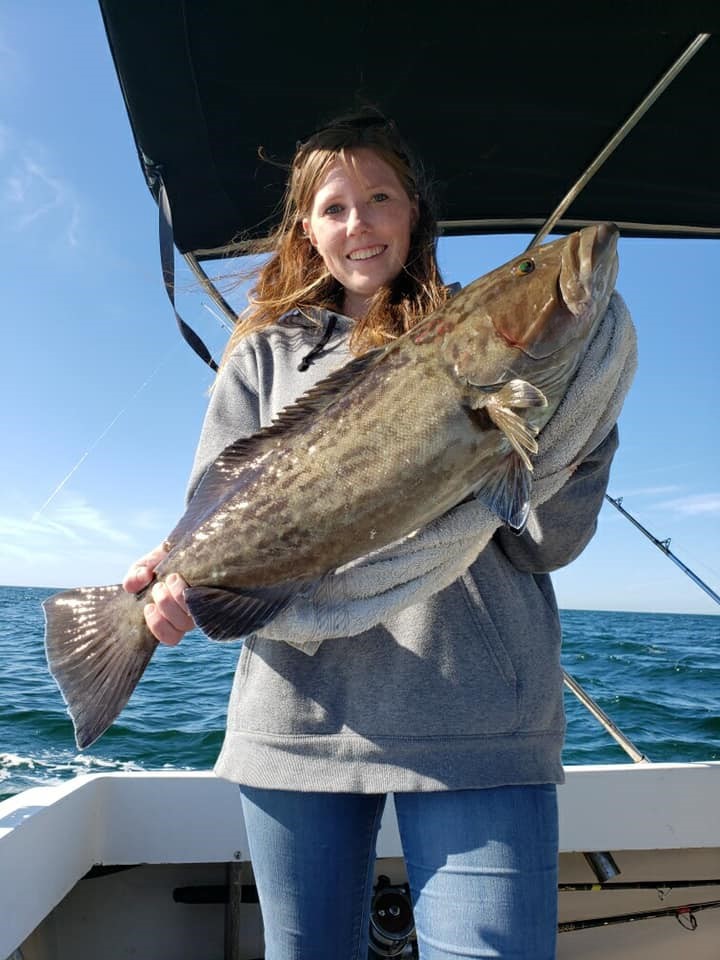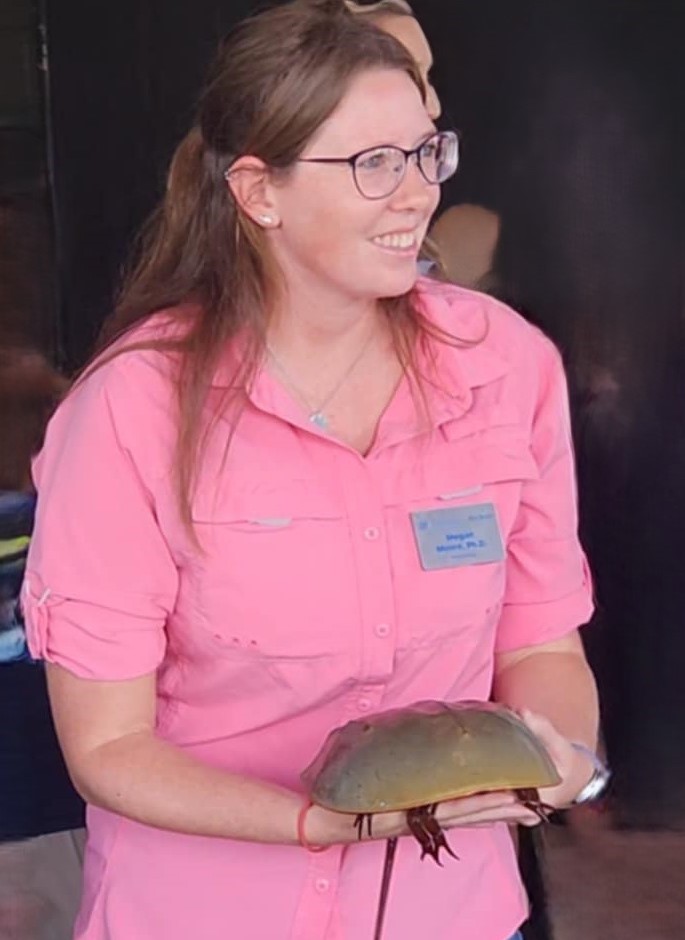
Dr. Megan Moore has officially planted her roots in Pasco County as the first-ever Florida Sea Grant UF/IFAS Extension Agent for the area. Growing up in New Port Richey, where nature parks blend into sandy coastal playgrounds, it’s no surprise that Dr. Moore is now serving the community she calls home.
“I was lucky my parents loved the ocean and shared their outdoor experiences with me,” Dr. Moore reflects. “My dad would take me fishing and scalloping, and we’d go kayaking in the rivers or springs up toward the northern counties. All of this inspired me to appreciate Florida’s diverse ecosystems and waterways that are all intricately connected.”
Dr. Moore earned her Bachelor of Science in Geology from the University of South Florida and pursued a Ph.D. in Marine Geosciences at the University of Miami’s Rosenstiel School of Marine, Atmospheric, and Earth Science. Her research focused on the geochemical analysis of marine systems, examining biogeochemical impacts and agricultural pollution on aquatic habitats.
After several years in academia, Dr. Moore returned to her hometown to empower a new generation of marine scientists by becoming a high school teacher. Dr. Moore’s experience interacting with students from diverse backgrounds and designing educational projects makes her a fitting candidate for the Florida Sea Grant Extension Agent role.
“It is very exciting to have a Sea Grant extension agent in Pasco County, filling the gap that existed between Pinellas and Hernando Counties,” says Dr. Maia McGuire, Associate Director of Extension and Education at Florida Sea Grant. “Dr. Moore’s expertise in water quality, carbon cycling, and sea level rise are particularly appropriate for the needs that have been identified in Pasco County. It is exciting to see what new educational perspective and insights she brings, considering her familiarity with K-12 education that can be very helpful as FSG brainstorms new education endeavors.”
As Pasco County’s Sea Grant Agent, she will be responsible for developing local marine educational programs for all stakeholders and fostering environmental stewardship across these groups. Her position is particularly significant given the newness of the role and the unique geographic characteristics of Pasco County.
It is exciting to see what new educational perspective and insights she will bring, considering her familiarity with K-12 education could by very helpful as FSG brainstorms new education endeavors
Dr. Maia McGuire
Pasco County is a vital area, with 24 miles of coastline along the Gulf of Mexico, encompassing the southernmost region of the Nature Coast Aquatic Preserve. Nestled between Hernando, Pinellas, Hillsborough, Sumter, and Polk counties, Pasco serves as a transition zone between agricultural lands and developed coastal communities. It is characterized by barrier islands, estuaries, mangrove forests, and seagrass beds that support vital fisheries. Pasco County is often referred to as the “Sports Coast,” with scenic coastlines and a thriving fishery driving community recreation and ecotourism.
Important waterways such as the Anclote and Pithlachascotee Rivers drain into the Gulf of Mexico, while wilderness areas and preserves are interspersed among residential communities. Two major state parks, Anclote Key Preserve and Werner-Boyce Salt Springs, cover nearly 16,000 acres of coastal terrain, including sandy beaches, wetlands, tidal creeks, and small artesian springs.
Given the vital natural resources and economic value that Pasco County contributes to Florida, it is critical to address the environmental challenges the county is currently facing.
 “In Pasco, we face both anthropogenic and natural challenges,” Dr. Moore explains. “One of our biggest concerns is shoreline and coastal vulnerability, especially with storm surges, sea level rise, and flooding causing coastal erosion. We also have water quality issues, with red tide and shellfish toxins affecting our scalloping season. Pollution and eutrophication from water runoff are causing environmental damage to our seagrasses, oyster reefs, and more.”
“In Pasco, we face both anthropogenic and natural challenges,” Dr. Moore explains. “One of our biggest concerns is shoreline and coastal vulnerability, especially with storm surges, sea level rise, and flooding causing coastal erosion. We also have water quality issues, with red tide and shellfish toxins affecting our scalloping season. Pollution and eutrophication from water runoff are causing environmental damage to our seagrasses, oyster reefs, and more.”
Dr. Moore envisions bolstering coastal resiliency through initiatives like living shorelines and mangrove programs, watershed management, water quality monitoring from inland Pasco near agricultural districts to coastal zones, and habitat restoration for damaged areas.
“Pasco is very important, and that’s my priority,” she says. “I want to develop projects that will benefit the community and provide restoration and conservation initiatives. The overall goal is to improve the quality of life for everyone by creating projects that they’re interested in and feel they can make a difference with. Because our program is new for Pasco, not only do I want to find solutions to current problems but also proactively address issues before they become significant challenges.”
To contact Dr. Megan Moore, you can reach out via email at me.moore@ufl.edu or her office phone at 727-355-7601.